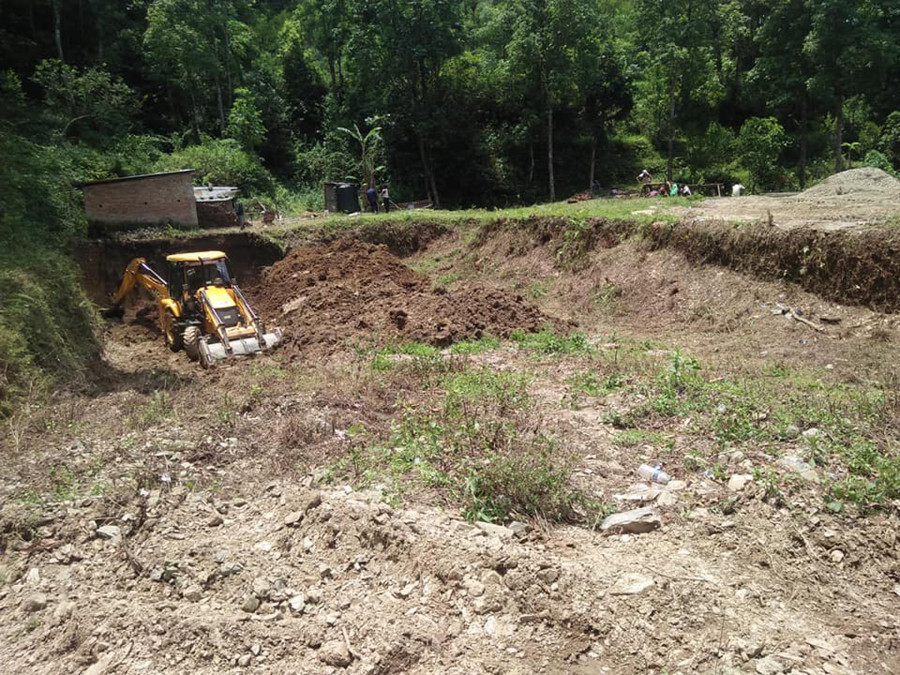Money
Farmers in Syangja to get cold storage facilities
Due to lack of proper storage facilities, farmers growing fruits and vegetables in the region regularly face financial troubles as their unsold produce eventually spoil.
Pratikchya Kafle
Authorities in Syangja have initiated the process to build three cold storage facilities to resolve issues faced by local farmers who are unable to store their produces for lack of such infrastructure in the region.
Construction of a cold storage in Jaisidadha in Putalibajaar has already begun. The warehouse is being built at an investment of Rs80 million.
According to District Cooperative Association Chair Laxmipati Paudel, the infrastructure is being built with financial assistance from Ministry for Land Management, Cooperatives and Poverty Alleviation.
The under construction cold storage in Jaisidadha has a capacity of 1000 metric tonnes. The Department of cooperatives has allocated Rs25 million while the Agriculture and Cooperatives Ministry has provided Rs25 million for the cold storage project.
According to Paudel, the remaining portion of the total investment must be managed by the association.
“We have shortlisted all the works and appropriated the budget provided by the federal and provincial ministry to execute the project,” said Paudel.
A total of 104 cooperatives and three municipalities—Putali Bajaar, Bhirkot and Galyang—will hold stakes of the cold storage.
Works have also begun to equip Triyasi Agriculture Cooperative in Waling and Janabikas Sana Kisan Cooperative with cold storages for housing vegetables and oranges.
According to Waling Municipality Spokesperson Kedar Kafle, the municipality has appropriated Rs9.8 million to build the storages. “60 percent of the total investment will be provided by the Department of Cooperatives,” he said. “The remaining 40 percent will be injected by the cooperatives where the infrastructure will be built.”
Due to lack of proper storage facilities, farmers growing fruits and vegetables in the region regularly face financial troubles as their unsold produce eventually spoil.
The government has incorporated provisions in the recently announced budget allowing the local level and provinces to inject funds in the development and commissioning of infrastructures being built by cooperatives to manage the retail market of agricultural products.




 16.12°C Kathmandu
16.12°C Kathmandu













